Late last year I was contacted by some folks who would be visiting the Calgary area in early March in search, primarily, of Snowy Owls. As my third ever outing as a professional guide, I went all out on researching what else we could see, and what other birds, mammals, and habitats that they might enjoy while they were here.
Our day started off with a sighting of a small flock of Gray Partridge near Frank Lake. This one oddity just happened to have two heads.
Down the road and around the corner from our first encounter was our first Snowy Owl of the day, sitting and catching the sunrise from atop one of their favored perches out here on the prairies, a single line telephone pole.
Around the lake were quite a few Horned Larks singing their hearts out on every single rock, dirt mound, and fence post they could. A sure sign of impending spring here on the prairies!
As we were well into their nesting season, a couple of Great Horned Owls that I’ve been checking on a few times this winter were along our route, and I thought I’d have a little fun with our visitors and see if they could spot the male half of this pair. Can you?
The rest of our loop around the lake didn’t turn up much of interest. The Prairie Falcons, Gyrfalcon, and Rough-legged Hawks in the area didn’t want to cooperate, but as we returned to the start of our loop, the light had improved significantly and our first Snowy Owl of the day was still resting on the same power pole as before.
And then the sightings came fast and furious after that. Snowy Owl after Snowy Owl posed close enough for everyone to get good looks. While the area around Calgary often has relatively good numbers of Snowy Owls, as I wrote over on Birds Calgary last month, I believe we’re catching a bit of the westernmost extent of the irruption taking place this year given the fairly large numbers that some observers have counted on a single day.
Another fairly unusual occurrence that I was able to show our visitors from Down Under, was a good crust of hoarfrost all over the power lines, trees, and fences south of the city. A short break was required to get really good looks at it, just as a breeze blew up from the west and scattered it down on us from the power lines above.
From Frank Lake we headed west into the foothills, to look for our third owl species of the day, the Northern Hawk Owl.
This particular pair has gained a fair level of infamy for local birders for being a bit tricky to find, even though their regular haunt is right at the junction of two secondary highways. I myself had gone down to that area four times before getting my first looks at it, and another birder reported that they’d gone down earlier in the day on March 5, and wasn’t able to find either one of them. Thankfully one half of the pair was visible silhouetted against the sky from one of the side roads, and as we approached its perch, it actually flew towards us to get a better look at us! This one’s a bit cheeky.
From there we headed deeper into the foothills, on one of my very familiar stretches of road northwest of Calgary, notorious for its Spruce Grouse, Northern Shrikes, and most importantly for our group, the Great Gray Owl. As we arrived at the southernmost extent of this stretch, we happened upon one of the target mammal species of the day, a magnificent herd of over 300 elk.
Unfortunately, the next two hours were quiet. Disturbingly so. Though the wind was low, the temperatures rising, and the sky clear, the birds were incredibly sparse. A pair of moose grazed on some willows south of Water Valley. A pair (and the first of year for me) of White-winged Crossbills flew across the road in front of my jeep before quickly disappearing into the thick boughs of a nearby spruce. A Gray Jay called in the distance, and was replied to by its mate. But no owls were to be found. We tried the roads west of Water Valley, and then further north, but still no owls were in sight. The sun was sitting low on the western horizon as we drove through Water Valley one last time, debating on making our dinner stop at the Water Valley Saloon, but I decided “Just one more pass.” Boy am I glad we did. We found this handsome fellow not three kilometers south of the Water Valley Saloon on one of the grid roads that we bypassed on our way up. It was a magnificent end to a great four-owl day.
Thanks again for reading, and good birding!
* You might wonder why my Snowy Owl photos are labelled “Female/Immature type” and “male type”.
While the traditional interpretation of Snowy Owl sex is that heavily barred, dark birds are females, and paler, less heavily barred birds are male, there are some researchers who have shown that this interpretation isn’t particularly reliable, hence my hesitation. In the field though, and in casual conversation, I do typically use the traditional interpretations as a shortcut for simplicity’s sake.



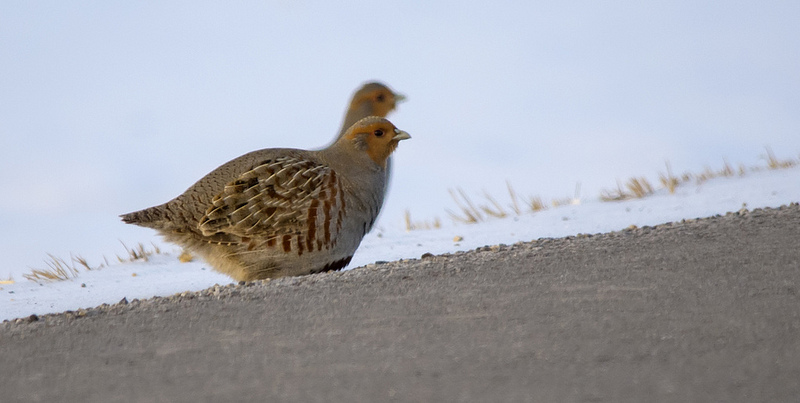
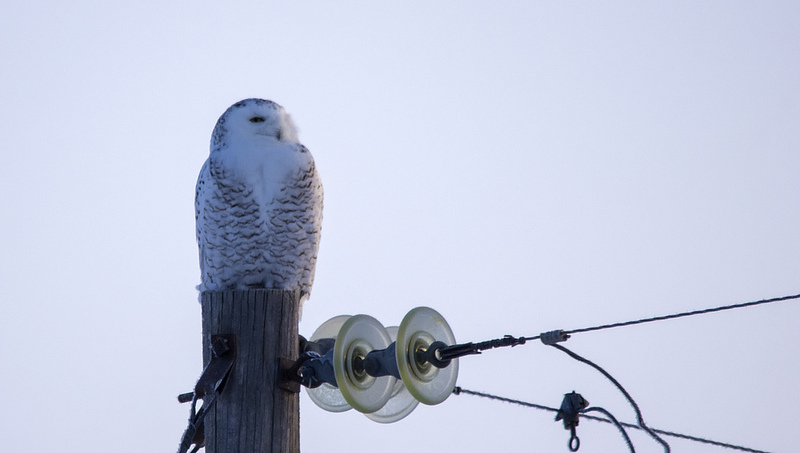
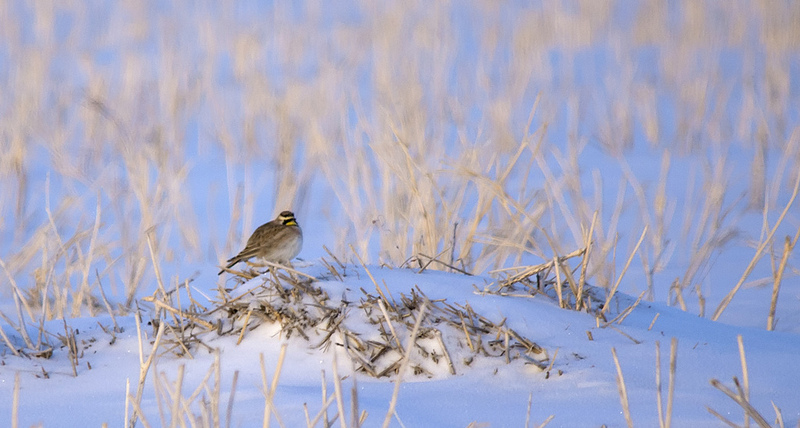
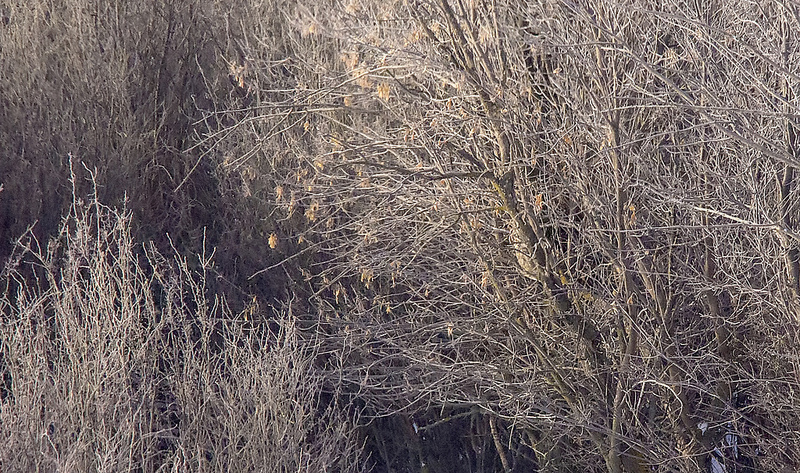
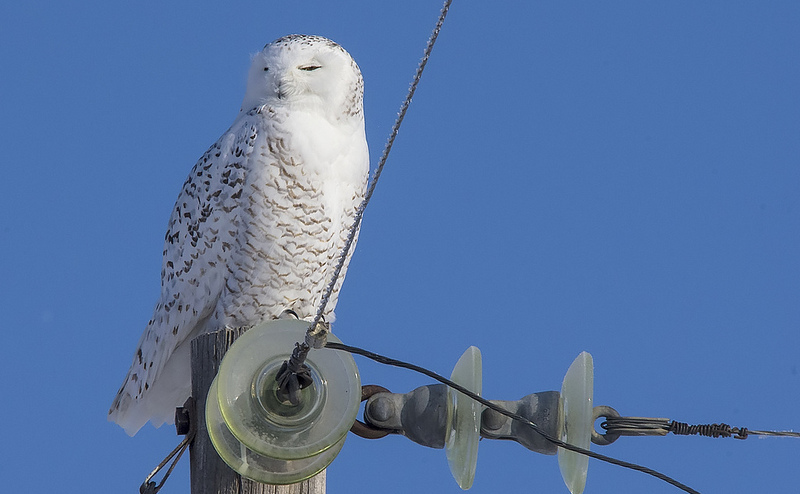
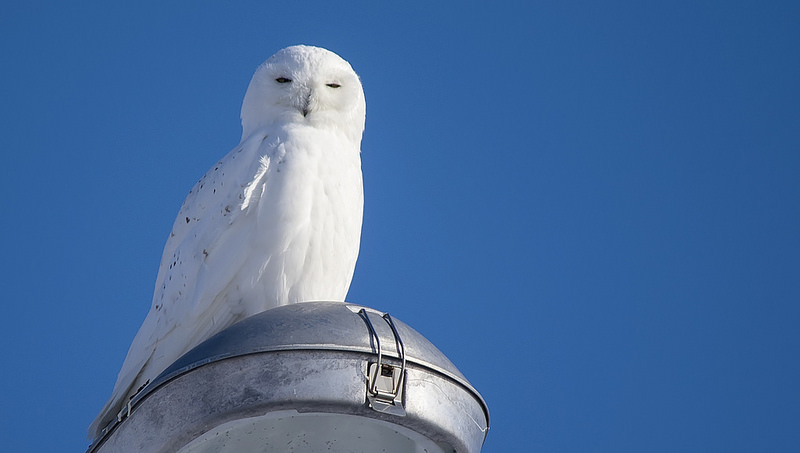
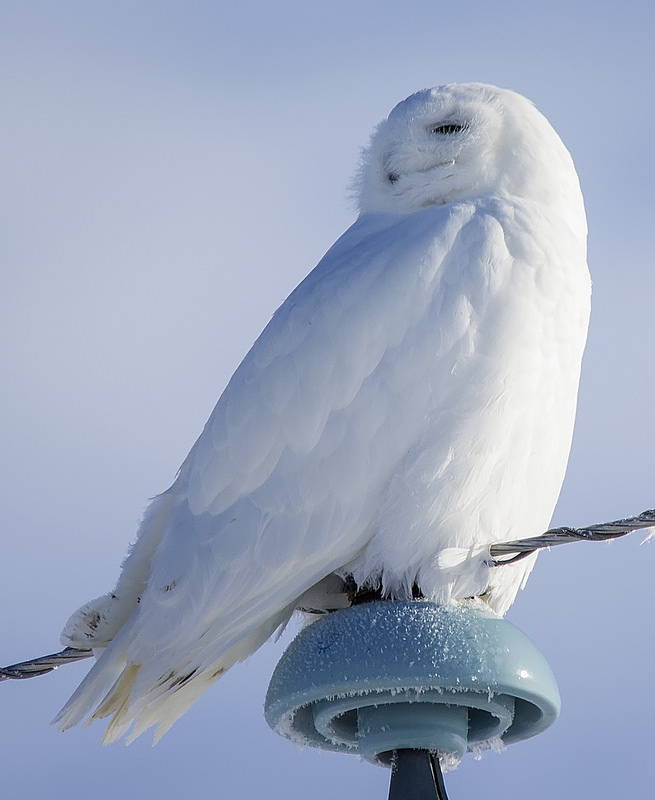
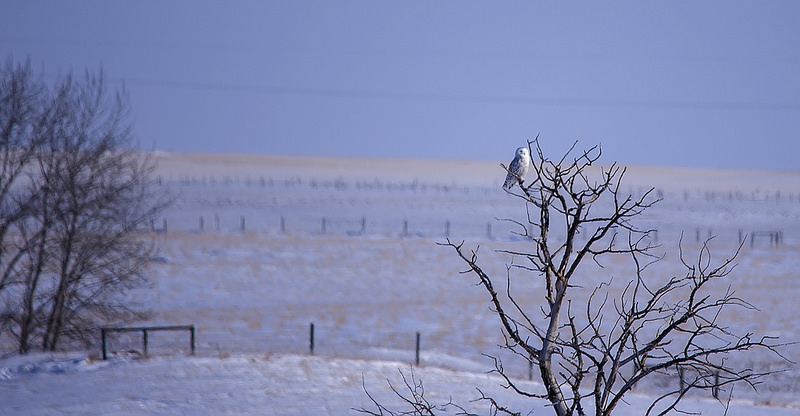
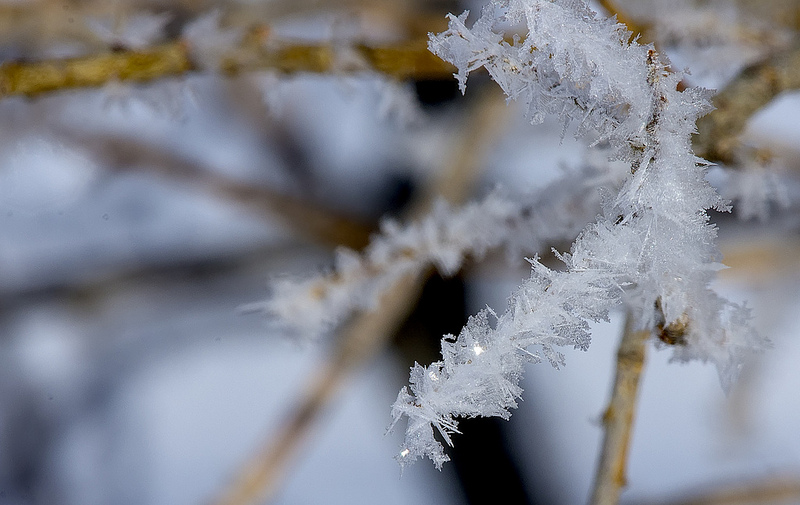
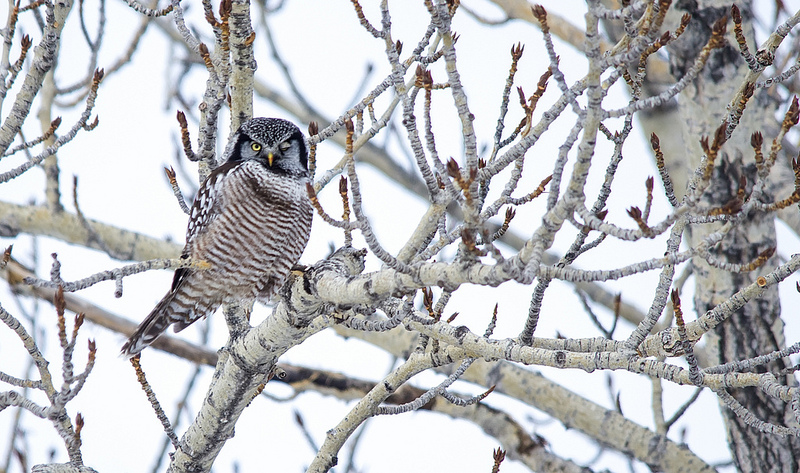

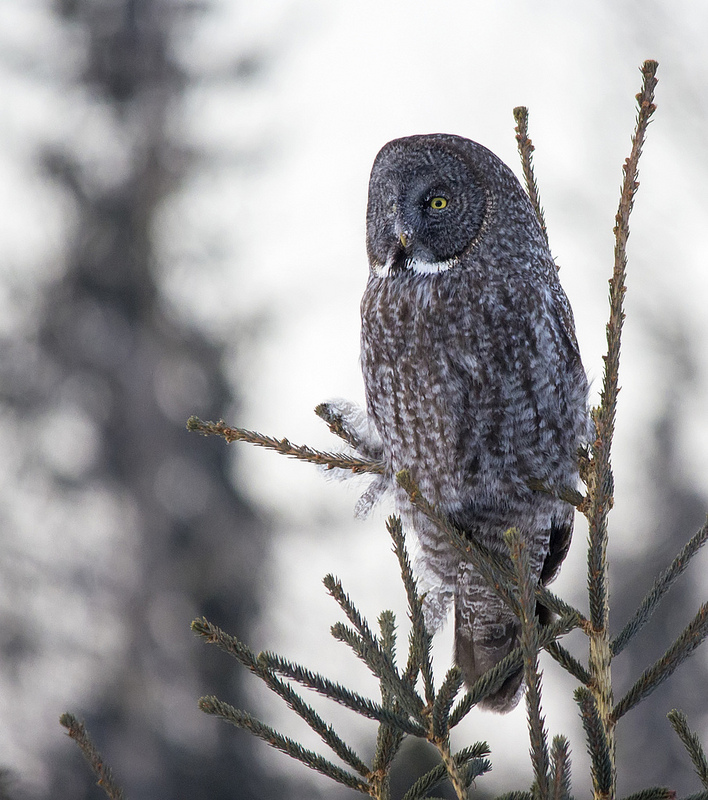
Thanks Bernard! Just a matter of advertising and getting clientele at this point.
Great Post Dan, Congratulations on your new dream job as a professional guide, Bernard.